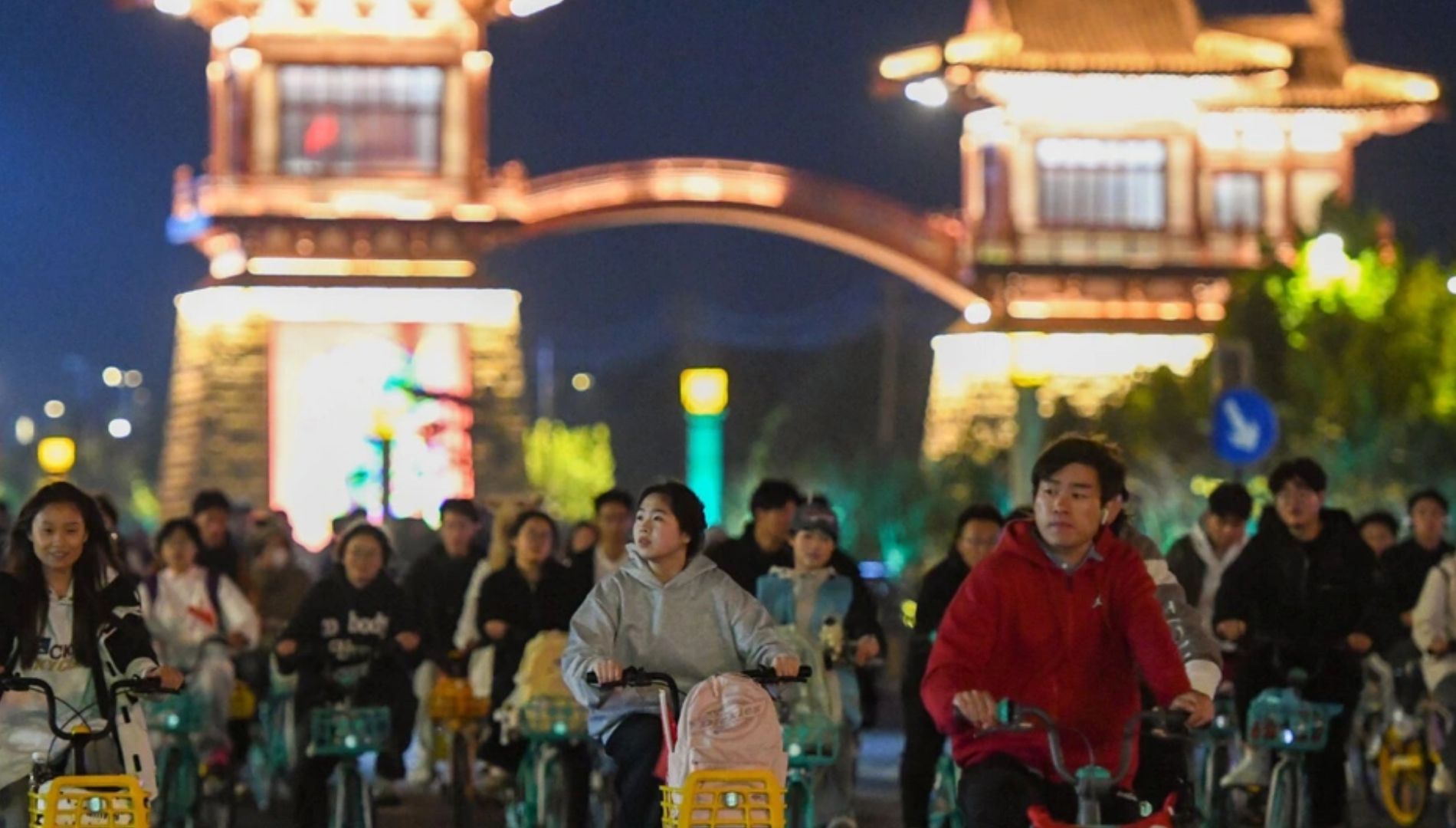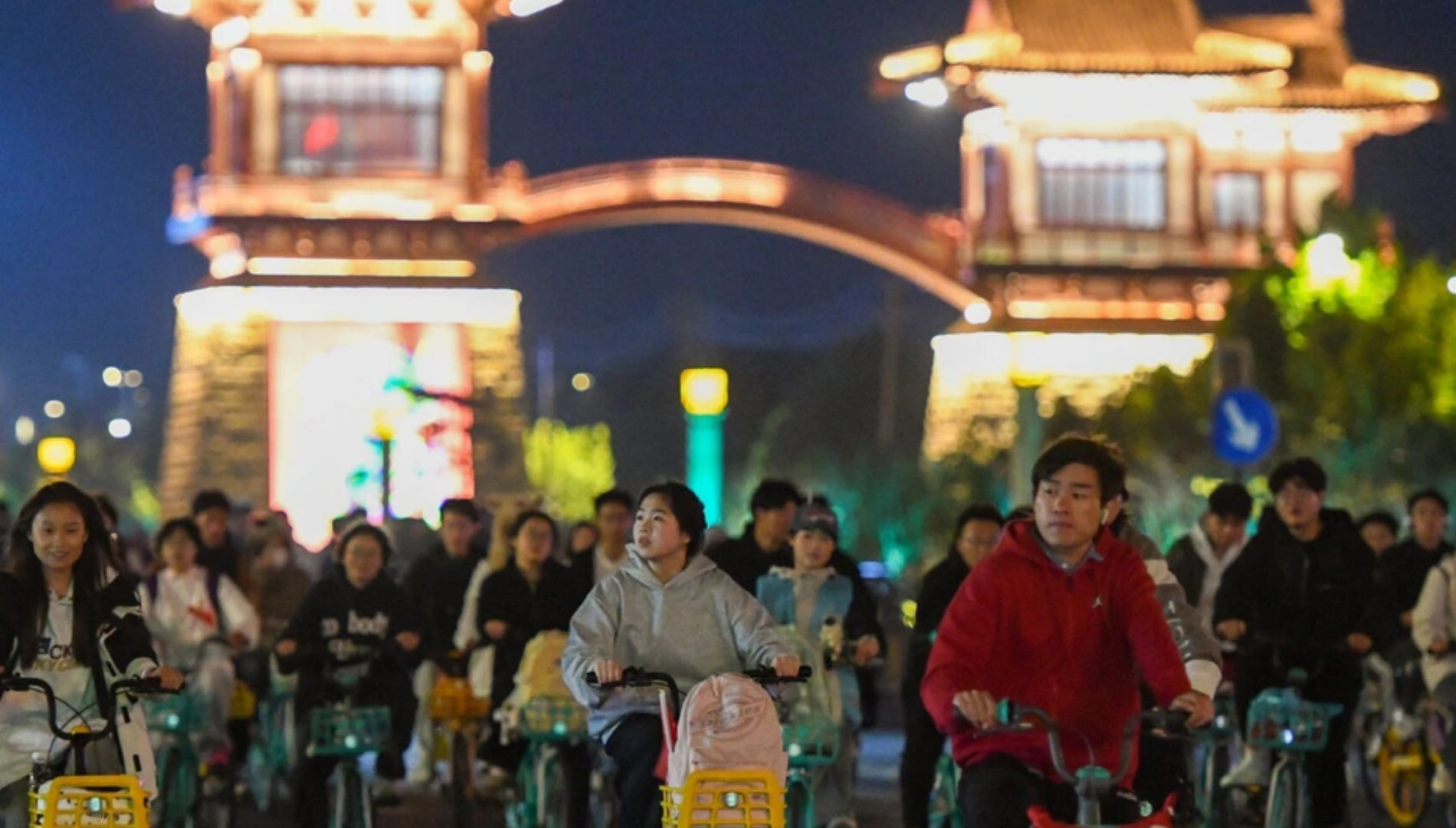"Youth is priceless, so travel to Kaifeng at night."
The phrase "ye qi" (night ride) has become popular on Chinese social media recently. Groups of students from universities in Zhengzhou, Henan, China, have been renting public bicycles to travel to Kaifeng, a nearby historical city. Videos of the cyclists heading towards Kaifeng have gone viral on various platforms. The group cycled over 60 kilometers, carrying flags, singing, and filming with their phones. All of this created a joyful and lively atmosphere.
According to some reports, between 100,000 and 200,000 people participated in these nighttime rides. The trend attracted attention from domestic and international media, especially as local authorities imposed restrictions on these cyclists, often referred to as the "nighttime riding army."
Starting with the story of four Chinese students who cycled 50km overnight to Kaifeng city in Henan province (China) to eat soup dumplings in June, this trend has recently spread unexpectedly. The group of young travelers said they cycled for many hours to reach Kaifeng and enjoy the famous soup dumplings there. Posts related to the trip were shared on social media, attracting attention.
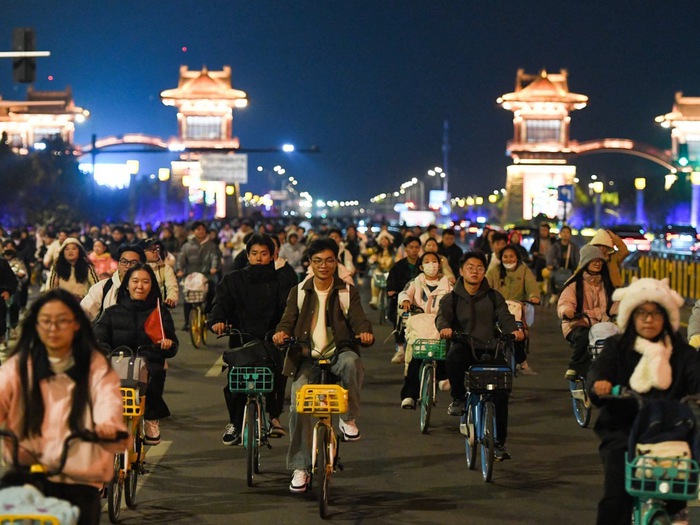
A trend of cycling 50km at night from Zhengzhou to Kaifeng (China) has attracted hundreds of thousands of participants, causing serious traffic congestion in the city.
The group cycled for five hours, then posted a video of the journey with the caption: "Youth only comes once." The post inspired hundreds of other students to follow suit. The trend of organizing nighttime group bike trips peaked in the first two weeks of November. This trend was also reported by foreign newspapers such as the BBC and The Guardian.
The soup dumplings mentioned above are a traditional dish of Kaifeng city. They are essentially steamed dumplings with a thin wrapper. Inside, the filling consists of pork mixed with spices and hot soup. When eating, diners must bite carefully to slurp up the soup before enjoying the filling and the wrapper.

The type of cake that attracts hundreds of thousands of cyclists to buy.
Affecting local residents.
Initially, the trend was supported by the city government. Like many other Chinese cities, Kaifeng is trying to attract more domestic tourists by offering incentives such as free entry to attractions. The China Daily praised this trend as bringing many healthy activities to a "wave of young tourists." Many students in Kaifeng take advantage of the opportunity to explore the historical and cultural attractions of this ancient city, giving a new dimension to the tourism industry.
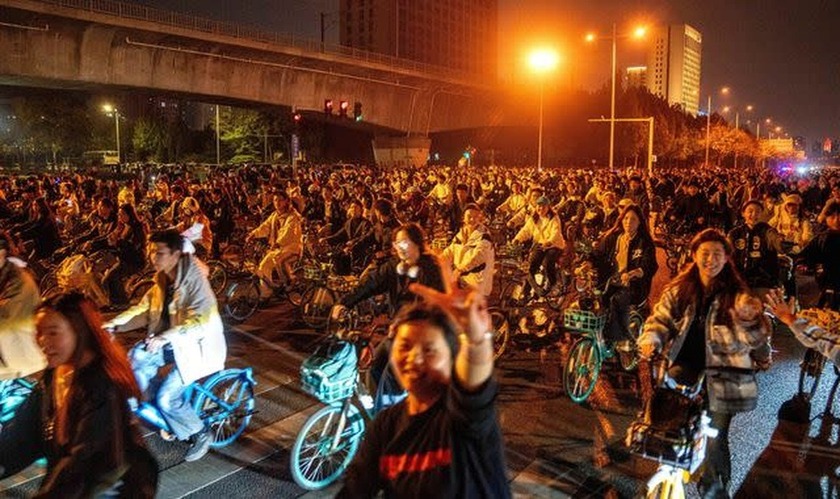
An estimated 100,000 to 200,000 people flocked to Kaifeng following a recently emerging trend.
However, locals have complained about the overcrowding of vehicles and the litter left everywhere. To curb this trend, in addition to weekend traffic restrictions, major bike rental platforms like Hellobike, DiDi Bike, and Mobile have stated that bikes will be remotely locked if passengers leave designated areas in Zhengzhou. Meanwhile, the media is advising students to "be more mature."
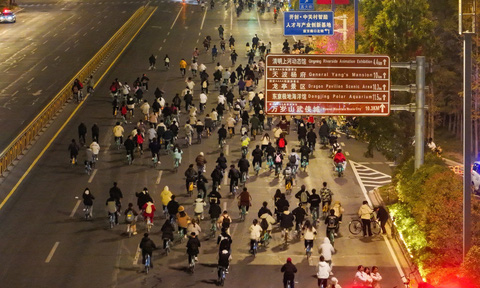
Some universities in Zhengzhou have also implemented measures banning bicycles on campus and requiring students to obtain permits when leaving the campus.
Videos shared on social media show tens of thousands of people crammed together on a six-lane highway. Local police were deployed and used loudspeakers to urge young tourists to leave early. "Youthful freedom doesn't mean chasing trends and indulging oneself," one media outlet warned in a comment. "Kaifeng is worth visiting slowly and enjoying carefully," another wrote.
Some universities have implemented strict measures such as requiring students to return to campus and enforcing lockdowns. By Sunday evening, students were posting on Weibo that they were not allowed to leave the campus. Despite the ban, some students in Zhengzhou said they would switch to hiking, a journey that could take up to 11 hours.

 VI
VI EN
EN



